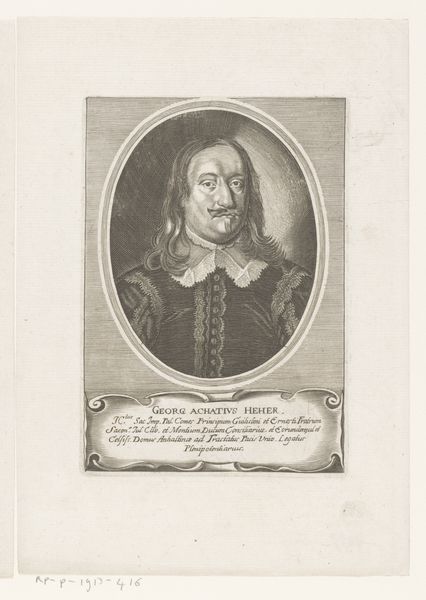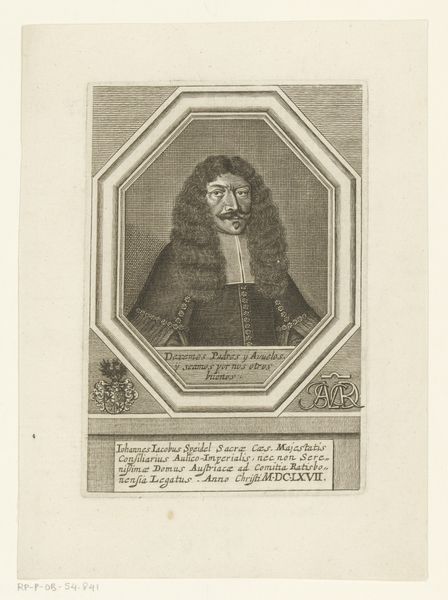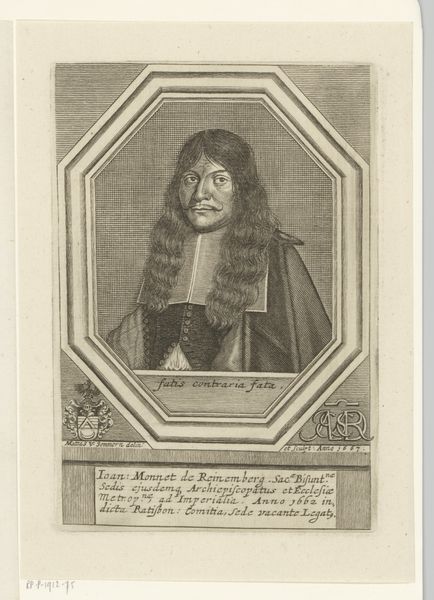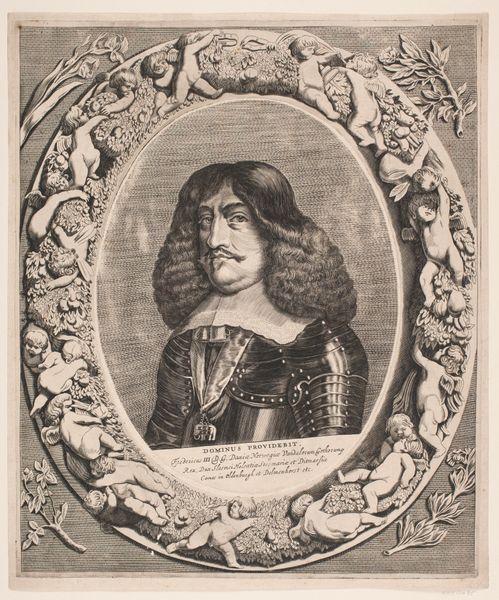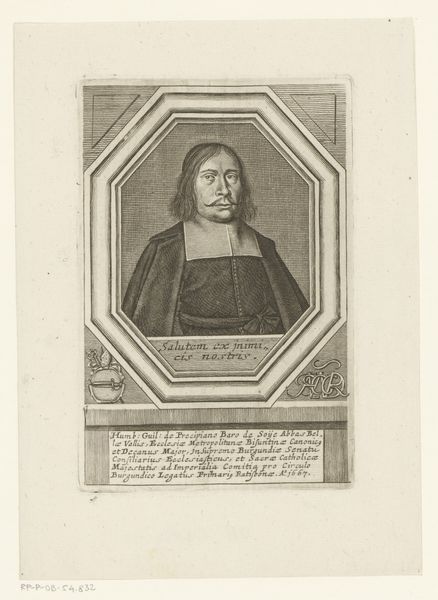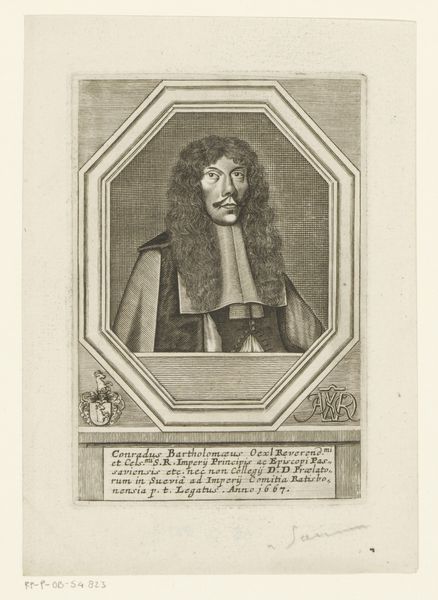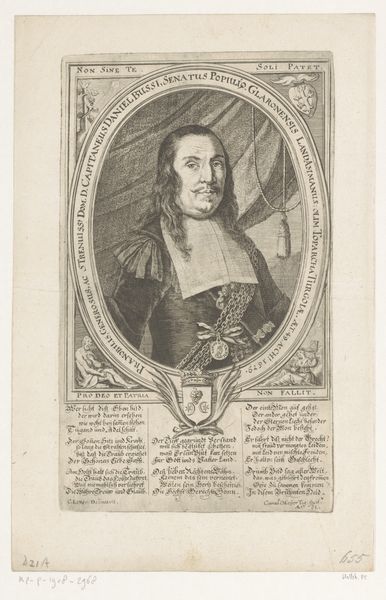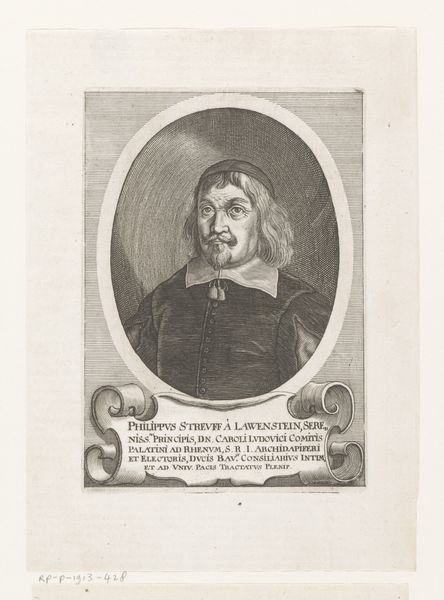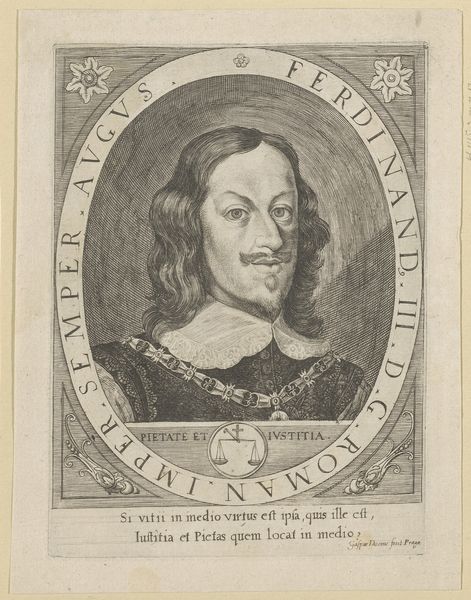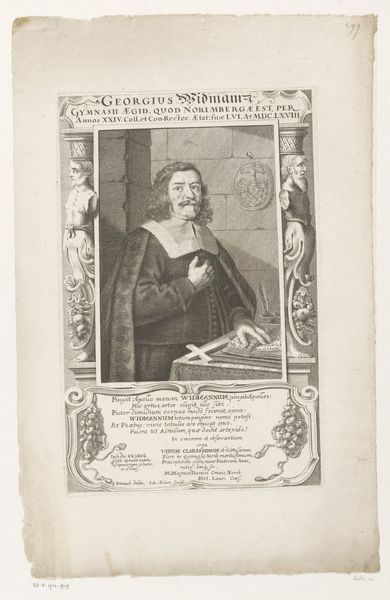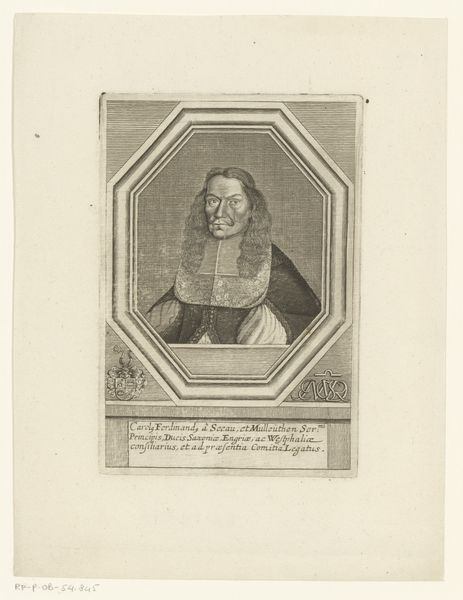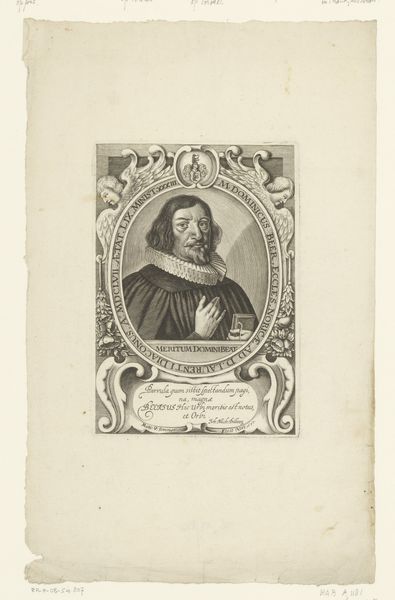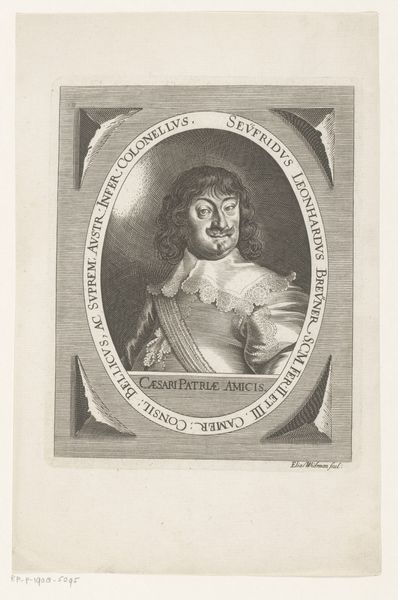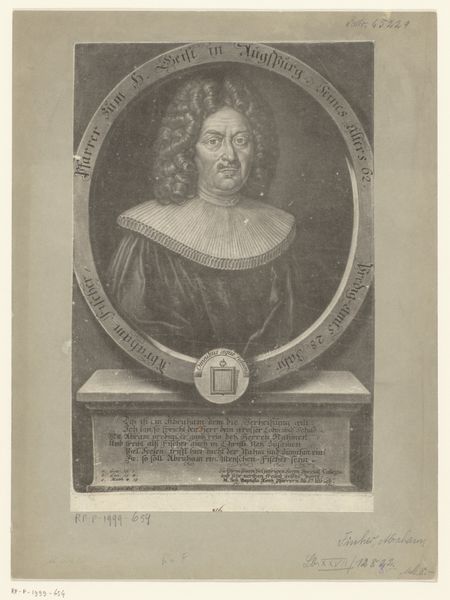
print, engraving
#
portrait
#
baroque
# print
#
old engraving style
#
line
#
history-painting
#
engraving
#
realism
Dimensions: height 154 mm, width 105 mm
Copyright: Rijks Museum: Open Domain
Editor: Here we have Matthias van Sommer's "Portret van Jacob Christoph Rassler von Gammerschwang," an engraving from 1666. I find it quite stately, but also a bit severe. What symbols do you notice? Curator: The image is steeped in the visual language of its time. The inscription "Pro Fide et Cæsare," "For Faith and Caesar", is telling. How does that sit with you? Does that alignment of religious and secular authority feel straightforward, or potentially fraught with tension? Editor: Fraught, definitely. It feels like he's trying to project both piety and power. The ruffled collar is traditional, right? Curator: Yes, but consider its function. It separates the head – the seat of reason and divine connection – from the body and its earthly concerns. Even the texture, achieved through those intricate lines, emphasizes a kind of refined detachment. Does it strike you as restrictive or liberating? Editor: Restrictive, I think. The composition confines him; his gaze feels very direct, almost challenging. Curator: The frame itself acts as another kind of boundary. Yet within that, note the careful placement of the family crest, signaling lineage and legacy. What kind of memory does it preserve? Is it meant to intimidate or impress, perhaps even persuade? Editor: I hadn't thought of it as persuasive. I guess it adds to the whole picture of him as a man of substance. It seems like van Sommer put a lot of care into crafting that image. Curator: Absolutely, and paying attention to the symbols that surround an image helps us engage in a fuller, more imaginative exploration of both its content and impact. Editor: I never thought about those cues as persuasive devices but that gives the image even more historical relevance, thank you.
Comments
No comments
Be the first to comment and join the conversation on the ultimate creative platform.
